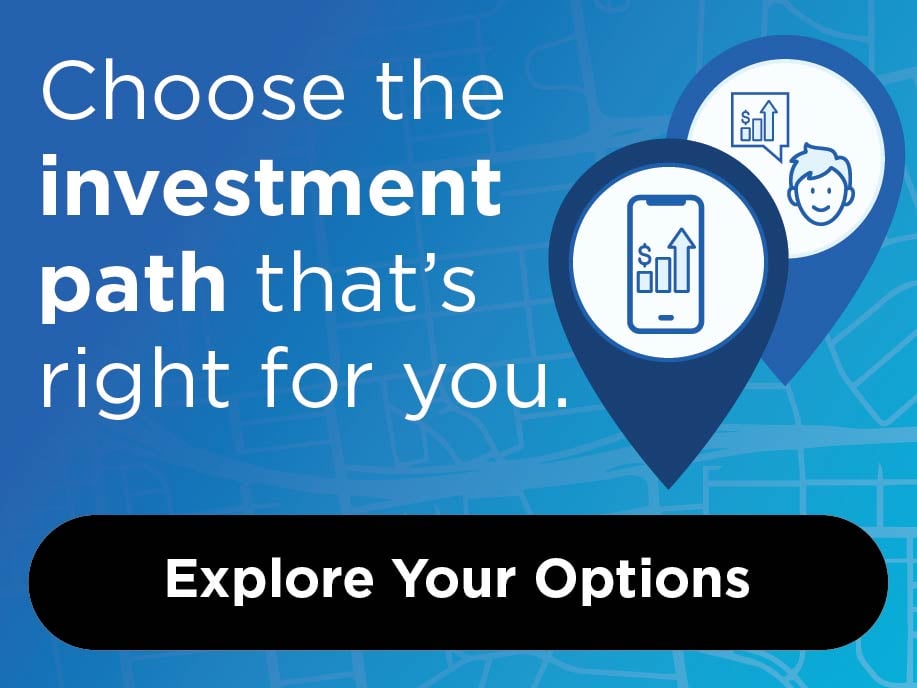
You want to build your credit, but how are you supposed to show a history of your repayments if no one will give you credit in the first place? Without a credit history, it can be hard to get a loan, a credit card or even an apartment.
Here at CommunityAmerica, we understand the challenges and questions that come along with the credit-building journey, and we’re here to help. Whether you’re not sure where to start or already have a well-established credit history, we’re sharing some useful tips and debunking some common credit misconceptions to make understanding your credit a little easier.
Here at CommunityAmerica, we understand the challenges and questions that come along with the credit-building journey, and we’re here to help. Whether you’re not sure where to start or already have a well-established credit history, we’re sharing some useful tips and debunking some common credit misconceptions to make understanding your credit a little easier.
Who Can See My Credit?
Anyone who issues credit for things such as credit cards, mortgages or other loans, as well as future places of employment and potential landlords can look at your credit report, which is why having a good credit score is essential.
The lender decides whether to issue credit or a loan based on several factors, including your credit score, which is a three-digit number determined by criteria such as type of credit, length of credit history and amounts owed. Your credit report, a record of all your credits, includes loans or credit cards you open under your name and contains your credit score.
The lender decides whether to issue credit or a loan based on several factors, including your credit score, which is a three-digit number determined by criteria such as type of credit, length of credit history and amounts owed. Your credit report, a record of all your credits, includes loans or credit cards you open under your name and contains your credit score.
Common Misconceptions
It doesn’t matter how much of your credit line you use.
While it can be exciting knowing your credit card company has raised your credit line, we don’t recommend maxing out your credit cards because that can negatively impact your credit. Instead, limit your spending to 30% or less of your available credit limit for the month. Then, each month, try to pay as much of your outstanding balance as you can, not just the minimum payment. Doing so will help keep the balance for that month under that percentage.
Canceling credit cards won’t negatively impact your score.
You might have found an old credit card in your kitchen drawer or tucked away in your wallet, and you can’t remember the last time you used it, so your first thought might be to cancel it. Don’t cancel it just yet, however, because whether it negatively impacts your score depends on how long you've had that credit card.
So, for example, if you want to close a 15-year-old credit card, and everything else on your report is only five years old, cutting out that 15-year-old history could negatively impact your credit, especially if that credit was good. If you need to cancel a credit card, consider one you’ve had the least amount of time.
So, for example, if you want to close a 15-year-old credit card, and everything else on your report is only five years old, cutting out that 15-year-old history could negatively impact your credit, especially if that credit was good. If you need to cancel a credit card, consider one you’ve had the least amount of time.
Paying in cash can’t hurt your credit
Some people prefer to use cash because it’s easier to track spending. While paying in cash can’t hurt your credit, it won’t necessarily help it either.
Lenders are looking for borrowers who have proof of a positive history, such as paying bills on time. If you only pay in cash, lenders won’t know you’re a good borrower. A credit card may help you build a good score.
Lenders are looking for borrowers who have proof of a positive history, such as paying bills on time. If you only pay in cash, lenders won’t know you’re a good borrower. A credit card may help you build a good score.
Your report reflects rent and insurance payments.
A credit report does not reflect rent and insurance payments. However, if your utility bills have not been paid, lenders could report you to collections, and that could show up negatively on your credit report.
Best Ways to Build Credit
Pay your bills on time.
No one’s perfect, especially when it comes to finances, so if you’ve missed a payment, don’t panic.
Some creditors give a grace period. For instance, at CommunityAmerica, we provide a fifteen-day grace period for an auto loan. If you’re unsure if you have a grace period, check previous statements or give your lender a call.
Some creditors give a grace period. For instance, at CommunityAmerica, we provide a fifteen-day grace period for an auto loan. If you’re unsure if you have a grace period, check previous statements or give your lender a call.
Set automatic payments.
Setting up auto-payments will help ensure your bills are paid on time, which can help keep your credit score up. In addition, it’ll give you some peace of mind, as you won’t have to worry about missing a payment. Report false information on your credit report.
Check your credit report regularly, and if you find any false information or errors, contact one of the three credit reporting agencies: Equifax, TransUnion, or Experian. It typically takes about 30 days to fix the error, so don’t worry if you don’t see your credit score change overnight.
Check your credit report regularly, and if you find any false information or errors, contact one of the three credit reporting agencies: Equifax, TransUnion, or Experian. It typically takes about 30 days to fix the error, so don’t worry if you don’t see your credit score change overnight.
Diversify credit types.
Diversifying credit lines can positively impact your score, which may be something to consider if your only form of credit is in credit cards. For example, have a credit card, as well as a student or auto loan.
How to Find a Credit Card
Many of the more popular credit cards offer shopping or travel points and are subsequently enticing to consumers, but the likelihood of spending the necessary amount to reap benefits is low. Instead, look for a starter or student card with a low interest rate. To avoid overspending, limit your credit card to purchases like gas or groceries – everyday items that will be easier to pay off each month.
The sooner you start building your credit and implementing these good habits, the sooner you'll be on your way to financial freedom. Remember, you’re not alone on this financial journey, and we’re here to help. To get started, contact us or visit us at a local branch.
The sooner you start building your credit and implementing these good habits, the sooner you'll be on your way to financial freedom. Remember, you’re not alone on this financial journey, and we’re here to help. To get started, contact us or visit us at a local branch.





